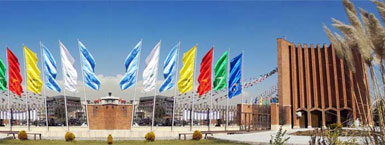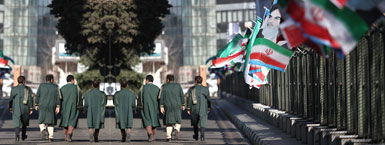Soil and Foundation
Geotechnical engineering is a branch of civil engineering that examines the
mechanical behavior of the earth in general and the soil, rock, and structures
constructed with them in particular. Due to the fact that every type of
structure has direct connection with the earth, this field of study plays a
significant role in the construction industry, dam, tunnel and road
construction. Investigating the resistance and strengthening of the foundation
of structures is directly related with seismic geotechnics and knowledge of soil
behavior and rock under dynamic loads such as earthquakes. Seismic geotechnics
studies the mechanism of earthquake in earthquake hotspots and investigates how
earthquakes move in different earth structures, and determines the design
earthquake for a site. In the field of energy, this field is absolutely vital.
For example, this field of study examines the application of geothermal energy,
oil and gas storage, as well as oil engineering. The development of hydraulic
failure in the last few decades, or in fact a mechanical examination of liquid
or gas interactions, has had a tremendous effect on recent oil and gas
production. In addition, the use of geothermal energy is not usually effective
without the production of hydraulic cracks. Geotechnical engineering plays an
important role in the field of atomic waste landfill, which is a toxic
substance, an issue which requires competent geotechnical specialists to study
the interaction of soil and rock mechanical behavior and thermal
transformations. Another application of geotechnical engineering is in defense
projects of the country. In particular, the stability of an underground
structure due to explosive loads should be studied and this requires
geotechnical specialists who are familiar with the mechanical behavior of
materials at high loading rates. Additionally, this field requires familiarity
with the nonlinear numerical model, the dynamics, and the change in the massive
shapes. One of the important goals of the geotechnical department of Tarbiat
Modares University is to build advanced laboratory facilities for conducting
research of Ph.D. students and other specialized key projects. In this regard,
this department has managed to manufacture a large number of devices to equip
its geotechnical laboratory. The Geotechnical Engineering Department of Tarbiat
Modares University was founded in 1991 in order to train geotechnical engineers.
In 2008, the department began admitting Ph.D. students and succeeded in
providing a large number of geotechnical specialists to the scientific community
of the country.
|




